Kenya
Agenda for Change members working on systems approaches
Please note this is a summary of information. You can learn more on the CARE, CRS, Concern, and Welthungerhilfe websites.
CARE and Catholic Relief Services (CRS) are both implementing partners in the Kenya Resilient Arid Lands Partnership for Integrated Development (Kenya RAPID). Kenya RAPID was a five-year program, convened by the Millennium Water Alliance, with a focus on “bringing together public and private institutions to increase access to water and sanitation for people and water for livestock, and to rebuild a healthy rangeland-management ecosystem.”
CARE also works on the School Water, Sanitation, and Hygiene plus Community Impact (SWASH+) project, which is an action‐research and advocacy project focusing on increasing the scale, impact, and sustainability of school water, sanitation, and hygiene programming in Kenya.
CRS works with support from USAID, the Swiss Agency for Development and Cooperation, and private donations, to assist people in two the counties of Isiolo and Turkana to increase their harvests and sell produce locally to make extra income. Other partners on the Kenya Rapid project include CARE focusing work in Garissa county, Food for the Hungry focusing in Marsabit county, and World Vision working in Wajir county.
Concern Worldwide started working with Marsabit County government’s department of Water in 2018 and with the County government of Turkana in 2020 through a system strengthening approach leveraging on multi-level engagements in the county water system. This work is directed toward improving capacities and other resources needed for the governments to fulfill their mandates of ensuring sustainable water supply services in the two counties.
Since 2017, six of Welthungerhilife’s country programs, including Kenya, have adopted systems strengthening approaches as part of the Sustainable Services Initiative (SSI). The initiative involves a partnership with the German Toilet Organization, Viva con Agua, and technical support from Aguaconsult. Welthungerhilfe’s intervention areas in Kenya have mainly been in the arid and semi-arid zones of Kajiado, Makueni, Kitui, Tana River, Marsabit, and Garissa Counties. In 2012, Welthungerhilfe started implementing interventions in Nairobi County and in 2015 expanded to Kakamega, Vihiga, and Siaya Counties as well as Turkana, Wajir, and Mandera Counties working with partners.
Systems strengthening activities
Convened by the Millennium Water Alliance, CARE and CRS, amongst many others, are implementing partners on the Kenya RAPID program (2015 – 2020), where they are utilizing a public-private partnership platform to combine the assets and experience of development actors, and private and public institutions to address the complex problems created by inadequate water access and poor governance. Through this program, CARE works in Garissa county. Through the Kenya-RAPID program, CRS and partners drilled a borehole and then installed a water tank and solar panels, creating a solar pumping system to provide clean water for the community to drink, cook, wash, irrigate land and sustain livestock. Villages also now have water kiosks, where a household can pay $1 a month for their water supply and can collect 32 gallons of water each day. The money is used for the maintenance of the water system in case repairs are needed, ensuring its sustainability once the program ends.
On the SWASH+ project, CARE and research partner Emory University worked with the Government of Kenya to develop research topics and methods, and to interpret the results together. SWASH+ staff met with the Government of Kenya to pose strategic questions and consider implications for how to use the data to improve the work. SWASH+ maintained advocacy staff in order to ensure the work was aligned with government priorities and used data from SWASH+ studies to influence government decisions and investments in school WASH. Through the SWASH+ project, CARE engaged in work in Kilifi, Kisumu, Nakuru, Nairobi, Nyeri, and Mombasa counties across Kenya.
Concern’s interventions in Marsabit County involved the borehole rapid response team (BRRT), which works to offer timely countywide borehole repair services and expeditious restoration of services as soon as breakdowns occurred. Besides supporting the BRRT, Concern works with the Department of Water (DoWENR) to improve borehole operators’ skills in basic operation and maintenance and Water Users Associations’ (WUAs) governance, tariff setting and accountability knowledge. Concern’s work is beginning in Turkana County, but plans to adopt a similar systems-strengthening approach.
Welthungerhilfe supports communities in Kenya at the intersection of WASH, agriculture, and climate change adaptation, by creating educational sessions about hygiene, marketing, and business management, among other topics. Around Nairobi, Welthungerhilfe has led projects that improve access to clean water and sanitation facilities. To make a lasting change, their work is focused around three strategic aims: building or restoring latrines and water systems; hosting training sessions on the maintenance of these facilities, and help form groups in the villages to take on responsibilities for their maintenance and repairs, and involving local authorities and firms working in this sector in these activities.
Other partners
Entities of the Central Government
National Ministries of Water, Agriculture, Livestock, Fisheries, Health and Education
Local Governments
County Ministries and Departments of Water, Agriculture, Livestock, Fisheries, Health and Education
All others
Millennium Water Alliance, USAID, Food for the Hungry, World Vision, Swiss Agency for Development and Cooperation, Acacia Water, Davis & Shirtliff, The Coca Cola Africa Foundation, IBM Research Africa, Vitol Foundation, Bill and Melinda Gates Foundation, Emory University, Great Lakes University, Attir Water Project, Charity: Water, Sanergy, German Toilet Organization, Viva con Agua, Water Users Associations (WUAs)
Accomplishments
- SWASH+ proved that investing in WASH meant healthier students who had higher school attendance. It also convinced the government of Kenya to invest more money in WASH for local schools and gave schools the tools they needed to budget and plan for WASH over the long term.
- CARE’s advocacy efforts have led to a 64% increase in the budget allocations for WASH in the Free Primary Education (FPE) capitation grant in Kenya. The increment benefited all the 21,718 public primary schools in Kenya.
- Through the Kenya RAPID project, 184,172 people have gained access to safe and clean water and more than 22,512 people gained access to basic sanitation services.
Challenges
- Non-functionality rates for rural water facilities in Kenya still hover around the 30% mark, in part due to consistent breakdowns, expensive preventative and corrective maintenance, and limited funding and engagement from community members.
- Building trust can be difficult and should be accounted for throughout any project cycle. Strategies to help overcome mistrust include using trusted intermediaries, increasing transparency, shifting the balance of power, and providing risk-sharing mechanisms.
- Creating a system outside of existing government processes so that facilitating partners can gain greater clarity about the system. Without the expansion of the system this way, the ability to influence behavior change is limited.
How strong are the systems?
To determine how well systems are working, we rely on data derived from Building Blocks, which are manageable ‘sub-systems’ that can be supported and strengthened. Certain building blocks may be more strongly developed or applied at district or national level. Interactions between building blocks are essential.
National level
Building Block
Water
Sanitation
Hygiene
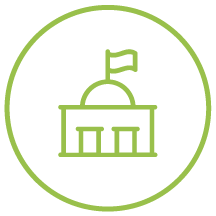
Institutional Arrangements & Coordination
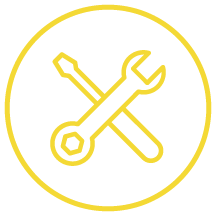
Service Delivery Infrastructure
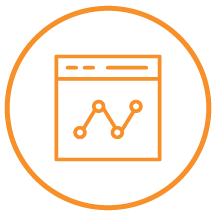
Monitoring

Planning
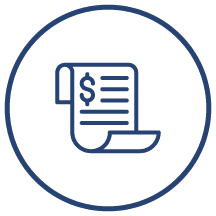
Finance
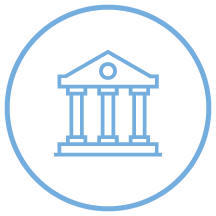
Regulation & Accountability
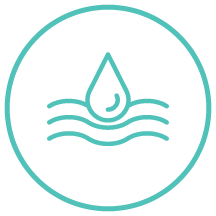
Water Resource Management
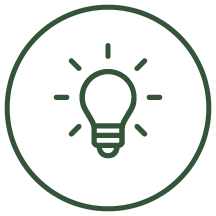
Learning & Adaptation
Resources
Systems Library
Please visit the CARE, Concern, CRS, and Welthungerhilfe websites for additional resources.
National
Local
National

PDF Download
Kenya Resilient Arid Lands Partnership for Integrated Development (Kenya RAPID) Fact Sheet


PDF Download
The Kenya RAPID Project Facilitation Approach: Progress, Challenges and Lessons Learnt with County Government


Local


